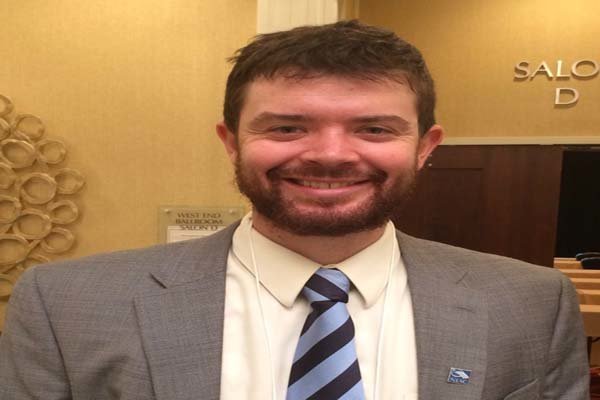Trump has done everything to discourage negotiation with Iran: Costello

TEHRAN - Ryan Costello says a great deal of trust was broken when Trump decided to fully withdraw from the JCPOA and snap back sanctions.
Turing a press conference with Italian Prime Minister Giuseppe Conte, U.S. President Trump said he would meet with Iranian President Hassan Rouhani without preconditions. His new strategy regarding meeting with Iranian officials caught commentators off guard, as he had been increasingly hostile to the Islamic Republic; on July 22, Trump threatened Iranian President Hassan Rouhani with an all-caps tweet.
Hours after Trump’s remarks contrary to his remarks, Secretary of State Pompeo outlined a series of preconditions.
In his latest move repeating the idea of negotiating with the Iranian authorities, U.S. President Donald Trump on Saturday said any meeting with the Iranian leaders is "up to them."
Earlier, Iranian president's chief of staff Mahmoud Vaezi revealed that during Rouhani’s last visit to New York for the UN General Assembly session, Trump asked the Iranian delegation eight times to have a meeting with the president.
An adviser to President Rouhani Hamid Aboutalebi also said "respecting the Iranian nation’s rights, reducing hostilities and returning to the nuclear deal are steps that can be taken to pave the bumpy road of talks between Iran and America."
To shed more light on the issue we reached out to Ryan Costello NIAC assistant policy director.
Following is the full text of the interview:
Q: How do you assess contradictory statements of the U.S. officials?
A: The U.S. is pursuing a pressure campaign but hasn’t decided whether that campaign will be an end in itself or a means toward a policy goal. Trump appears to have signaled a willingness to negotiate, in line with his approach toward North Korea, but it is unclear if he is serious or if his advisors would permit such a shift in approach at this time.
Immediately after Trump’s statement saying he’d negotiate without preconditions, Secretary of State Pompeo outlined a series of preconditions. Moreover, John Bolton – Trump’s national security advisor – indicated in 2017 that after the U.S. withdraws from the nuclear accord the administration should leave the prospect of negotiations open to demonstrate Iranian intransigence – not out of a sincere hope for dialogue.
Whereas the Obama administration had clear goals, it is hard to tell what Trump and his administration want on Iran policy.
Q: Is it possible to talk under threat, sanction and breaking of international agreements?
A: My sense is it is still possible for Iran to talk to the United States, but the Trump administration has done almost everything it can to disincentive serious negotiations. A great deal of trust was broken when Trump decided to fully withdraw from the Iran nuclear deal and snap back sanctions, which has limited the space in Iran to re-engage with the United States.
However, writing off negotiations completely until 2020 or 2024 could prove to be a mistake for Iran given the power of U.S. sanctions. If the Trump administration turns a new leaf and demonstrates a sustained interest in dialogue, Iran should consider direct negotiations. Trump has re-written the political rulebook in the United States before and could do it again, so it might be worth testing whether a mutually-beneficial deal can be struck.
Q: What can Trump do to show his good will for starting talks with Iran?
A: An obvious good-faith gesture would be to return to the Iran nuclear accord, though I don’t believe Trump would consider doing so given its association with his predecessor Barack Obama. An alternative would be to delay the re-imposition of key sanctions that had been lifted under the nuclear accord, provide waivers to European companies eager to continue business started under the JCPOA, or – less convincingly – write to Iran’s leaders articulating bottom lines that he would like to address in future meetings. Given the variety of areas of pressure the administration is pressing on, there are many areas where Trump could ease off in order to try to jumpstart negotiations.
